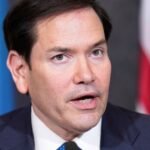How Public Attacks on Harvard Harm All of Higher Ed
The Trump administration has waged its war on higher education on the battlegrounds of social media, press releases and on-air interviews. Shrouded in vague terminology and questionable legal authority, the public attacks are a stark departure from the channels the federal government traditionally uses to issue guidance and policy changes.
In March, we learned from the Department of Health and Human Services press office that it, along with the Department of Education and the General Services Administration, had started a comprehensive review of $54.1 million in federal contracts and $5 billion in federal grant commitments for Columbia University over alleged violations of Title VI of the Civil Rights Act. The next day, the president doubled down on social media, posting to the conservative site Truth Social, which he owns, that colleges and universities that allow “illegal protests” would be at risk of losing federal funding.
In May, during an ongoing public battle with Harvard University, Education Secretary Linda McMahon announced in a letter posted to the social media platform X that the federal government would no longer give grants to the institution. The document aired a litany of grievances against the institution including allegedly adopting a remedial math program and hiring “failed” former mayors Bill De Blasio and Lori Lightfoot; it also took aim at the Harvard Corporation’s senior fellow Penny Pritzker for being a “Democrat operative.”
The style and tone of communication goes beyond bombast and tells of a more coherent vision for the country, including higher education, according to Daniel Kreiss, the Edgar Thomas Cato Distinguished Professor in the Hussman School of Journalism and Media at the University of North Carolina at Chapel Hill and the faculty director and principal researcher of the UNC Center for Information, Technology, and Public Life. Issuing public threats, using pliable labels and making examples of individual colleges are tactics to control an autonomous sector and provoke widespread confusion, he said in an interview with Inside Higher Ed.
Colleges have little recourse to fight the full force of the federal government—legally or through publicity, Kreiss said, but he urged institutions to invest more in their local communities and to recommit to their teaching missions. He also explained why Vice President JD Vance’s autobiography is a great teaching tool.
(This interview has been edited for length and clarity.)
Q: The way the administration is communicating with higher ed is unlike anything the sector has seen before. Public letters and social media posts now deliver news of investigations, funding freezes or threats of future action. What does that reveal about how the government is thinking about its relationship with higher ed?

Daniel Kreiss
UNC at Chapel Hill
A: This is not the relationship, let’s say, between the U.S. government and research universities that prevailed from World War II on, when the government was collaborating with its research industries to make America stronger, militarily and economically. This is very much an adversarial relationship where the Trump administration is saying, “Universities and higher education broadly are making America weaker, and therefore we need to bring U.S. higher education to a heel in order to fit with our political vision for what America should be.” I think that some of the characteristics of the communication that you described is the strategy of policymaking through publicity, as well as the creation of a pervasive climate of uncertainty that is really directed by this core goal of theirs, which is control. In essence, what they want is for universities to fall in line behind the administration’s own vision and priorities for what the American agenda should be, which is one of a deeply reactionary, far-right coalition that is currently occupying all three branches of government.
Q: Do you think the administration has a vision for higher education in particular?
A: I think it’s a vision for America, and Trump has been remarkably clear on what that looks like. It’s an America defined pretty narrowly on racial, ethnic and religious terms. It’s an America that has a certain understanding of its history that aligns with those dominant religious, racial and ethnic groups. It’s an America that has doubled down on masculinity as its defining gender in terms of who should be in power and have power in public life. So when we talk about a vision for higher ed, it’s a higher ed that serves that.
This is what you see in these very vague pronouncements about things like DEI. Anyone who educates or does research on anything that runs counter to that celebration of a very particularistic America is suspect and un-American. Higher ed is part of a whole set of knowledge-producing institutions in society—we can think about journalists and scientists, too— as being problematic because they serve accountability functions. They hold corporations responsible for things like polluting. They hold executives responsible for violations of democratic norms. Or, you know, they hold people in power accountable for not being good custodians of public trust. I think the administration wants to weaken that accountability function that can be played by universities because it undermines, ultimately, their ability to exercise power in the service of that larger vision of what they believe America should be.
Q: You mentioned vague pronouncements about things like DEI. What conclusions do you draw from this tactic of sowing confusion and using unclear and undefined language?
A: Ultimately, the end goal is control. They have a few tools to do so—legal means, regulatory means—and they have a lot of funding means to get institutions that are otherwise autonomous in civil society to comply with what they want them to do. But in the absence of those levers, what do you use? Well, you use publicity to get willing compliance or anticipatory compliance.
This is really what’s key about the publicity piece, because every time they issue something on X or Truth Social or speak publicly about something, whether it’s a threat or making claims that a college is going to be investigated, they’re speaking to the sector as a whole. And publicity ensures that everyone in higher ed is going to have to be responsive to what they say, even if not publicly, but at least in internal decision-making.
If nobody really knows what DEI is, what discrimination actually entails, what threats are actually real and legal, who will be investigated and how, that creates conditions where every single university administrator has to act in some anticipatory way in order to mitigate a perceived threat, or to escape scrutiny. That ultimately increases this control over universities because they’re acting in ways that might comply in some way and likely are going far beyond what the law will actually allow. We can understand this by looking at other countries, like Hungary for example. Viktor Orbán has created enough of a climate of uncertainty that people comply with what he wants them to do. He’s weaponized uncertainty to his advantage. – waiting on confirmation from Kreiss on this line- sc.
The Supreme Court’s recent decisions have also played a role in this—in making it harder for [federal] judges to issue these broad injunctions. In essence, what they’re saying is that people are going to be anticipatory, interpreting whatever this public statement is in some way, and in the absence of any other guidance of what might be subject to judicial scrutiny or might be, let’s say, judicially suspect in itself, administrators are going to be making these decisions based on their own risk assessments.
Q: Speaking of the courts, we’ve seen a flurry of lawsuits challenging the administration, so some final decisions will be made on these issues at some point. Will that clarity roll back some of the pre-emptive compliance you’re describing?
A: Well the rub is the judicial process takes years. And administrators have to act now. And it’s in exactly that disconnect between that far-off time horizon of, “Oh, I’m sure our lawyers are telling us that this will likely get struck down” and in the meantime, you have to act on the basis of yearly budgets or what is in compliance with guidelines coming from the NIH or the NSF. All of those decisions have to be made in the moment, in a climate of uncertainty.
So in that context, no, the legal resolution is so far off, and the strategy of how to get there is so deeply unclear, that I don’t think higher ed’s in a great place to pursue judicial remedies for these things.
Q: We’ve got a number of examples of how institutions have responded to the administration—Harvard pushing back, Columbia and Penn conceding to demands, Jim Ryan resigning from the UVA presidency. Are universities at all prepared for how to handle this moment?
A: There’s a lot going on there, right? The best public case that we have for resistance is Harvard, but even while Harvard is negotiating, the Trump administration is continuing to put a lot of public pressure on it, which gets back to that earlier point that they’re speaking far beyond Harvard, saying, “If you do this, you will come under the full weight of federal government scrutiny, and we’re willing to have this battle.”
Universities are in a hard spot for a few reasons. One, collective action is really hard. Higher ed as a sector is deeply diversified, so the question is: Who’s in the best position to actually do that sort of fighting? The second is that every institution, no matter how large, is really complex. It’s hard to make a proactive case for anything, for just all of faculty, for example, let alone an entire university.
That said, there are a few effective models that we can begin to pick out. Harvard’s choice to double down on making an easily understandable argument for the value of higher education is our best public communication strategy—really doubling down on how universities are an economic engine for communities, states and America itself. When we’re talking about advancing science and technology, early research into artificial intelligence, the development of the internet—that all comes from university-led research that was funded, in part, through federal subsidies and research dollars. That has made America the leading country in technology innovation. This is where we get into a big tent with people from the Republican coalition who are pro-business and pro-corporations that are built on the infrastructure that universities help put together. We train the employees that go work for Fortune 500 companies that position America’s global dominance in its corporate workforce. It’s not saying we do everything, but we do a lot of really great public value work. And somebody needs to make that argument, because if no one is doing it, why would the American public come to these answers themselves?
Q: On the point about federally funded research at universities advancing technology innovation and the economy—is that argument lost on this administration?
A: My educated guess of why universities are this particular target in this particular way is that this is political. It’s not about America’s economic growth or America’s technological advantage at the end of the day. This is foremost a political strategy of mobilizing a set of grievances and victimhoods that help to build and maintain a coalition. It’s this idea that Trump’s electoral coalition is being continually victimized by being less safe. That America is losing its culture, its language, its identity, etc., through immigration. This has been the dominant drumbeat since Trump announced his candidacy for president in advance of 2016.
The other piece to this is the divide in the two parties between who has a college education and who doesn’t. This is a really important point that fuels the Republican Party’s coalition, and which is why attacks on higher ed, if we read them through the lens of publicity, are about identity work. [It’s] saying, “We are representing you people who never went to college against all these higher ed elites who don’t respect you, constantly denigrate America and who want us to be some cosmopolitan global force that’s going to undermine what makes America great.” That’s why, to me, it’s fundamentally political.
Q: Can you say more about the education divide among voters? How can colleges address that?
A: The New York Times did some great reporting maybe two years ago that gave universities social mobility scores. It was looking at which universities were the best vehicles of the American dream. One broad conclusion from that reporting was that a lot of universities are failing at this. Now, there’s all sorts of complicated reasons for that—income inequality generally, the finances of higher ed, etc.—but I think one thing that universities can very much do across the board is reinvest in opportunities for those who have the least amount of money or access to a college education.
I’m somebody who spent some time at very elite institutions, and, you know, they don’t always have great relationships with the communities that exist right next to them. If we’re thinking about what a model would look like to win people back to see these great advancements and their ultimate value for the American people, it would involve just trying to extend it locally. How do we create more affordable housing in towns where universities are located? How can we help people in communities where there’s vast income inequalities between the university and its surrounding environments? How do we get our deep wells of expertise and knowledge out into the communities closest to us in a way that clearly demonstrates through action, not just words or abstract statistics, our real value in people’s lives?
The last thing is that we need to reinvest in our teaching missions. Most professors I know care deeply about their students, but their time and attention is split in many different ways. We really need to restore commitment to that educational mission that we all have, at least for the very simple reason that students are the bridges to the communities that they represent. They’re our best messengers for what the value of this amazing institution of American higher education is. I have kids from all over the state, from all different walks of life—this idea is that what the university does is serve those students as well as their communities. The knowledge that students are bringing from those communities and the traditions that they are a part of flows into universities as much as knowledge is flowing out.
Q: In the swirl of staffing cuts and hiring freezes in response to federal funding cuts, are you concerned about what it means for science communication, fact-checking and efforts to combat misinformation?
A: At its best, science communication is scientists and social scientists making assessments based on the best available evidence that we have about a particular phenomenon in the world and society. We need people to play that function, because that’s the best evidence we have to make political decisions. We can have a range of possible political solutions to things as long as we’re safeguarding institutions that produce a set of public facts that we’re all sharing.
But as you know, science is complicated. There are always going to be debates. And that’s good. But when social scientists or scientists have a general consensus about something, it is the outcome of a very antagonistic process. Maybe that speaks to something that we used to have a lot more conversations around—explaining the scientific process and how hard it is to produce a fact, and how many millions of dollars go into producing research that can produce something as reliable as a fact.
We’re seeing this erosion of institutions that can serve the goals of public accountability, and it is deeply problematic for the field. So there’s going to be fewer people entering the field, because there’s less funding and fewer opportunities for them to do this work. The other thing is a lot of people make the choice not to go into doing disinformation-related research, in part, because it’s hard. We’ve seen doxing, death threats against researchers. It’s also the rhetoric, like when the vice president is calling somebody an “enemy of the people.” I taught JD Vance’s book to my undergraduates in 2017, and we had a great series of conversations about that book. I could have all sorts of differences with him, but I would never say JD Vance is an enemy of the people. It’s that deliberately inflammatory rhetoric that is exactly what a lot of researchers like myself are concerned about.
Q: Do you still teach Hillbilly Elegy to your undergrads?
A: That was a special one-off course, but I 100 percent would teach it again. It’s a great teaching tool and book, and I think it lays out a very particular and searing account of somebody’s upbringing while then prescribing a set of political responses that are thoughtful and can and should be debated in a classroom. It resonated with a lot of my students.
You may be interested

How Canine Companions service dogs help with tasks; Chase from “Paw Patrol” joins CBS News
new admin - Jul 26, 2025Saturday marks 35 years since the signing of the Americans with Disabilities Act. The ADA paved the way for service…

Collin Morikawa backs Bryson DeChambeau’s early Ryder Cup nod
new admin - Jul 26, 2025[ad_1] NEWYou can now listen to Fox News articles! Keegan Bradley pulled a stunner when he confirmed earlier this week,…

Southwest plane makes mid-air maneuver to avoid collision with another plane
new admin - Jul 26, 2025[ad_1] IE 11 is not supported. For an optimal experience visit our site on another browser.Flash flooding and extreme heat…
































